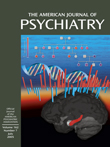Neuropsychiatric Assessment
I was hopelessly bad at mathematics at school and was happy to leave a world of half-understood quadratic equations and integral calculus well and truly behind me in my teens. Yet, a teacher’s end-of-term report on my progress in the subject has stuck with me as a cutting, if accurate, description of more generalized ability: “Tries hard—but then he has to.” This reassured my parents that I was at least doing my best and gave me a useful insight into my personal limitations. Many years older and not much wiser, I appreciate how much harder it is to write an honest—but essentially critical—report than one in which positive gloss, thickly applied, obscures the message.
In their introduction, the editors tell us that this volume in the Review of Psychiatry series provides an overview of the neuropsychiatric approach to assessment and presents discussions of techniques and testing methods that may be more familiar to neurologists than to psychiatrists. The book certainly does what it claims to on the cover: five chapters review the neuropsychiatric and neuropsychological examinations, electrophysiological and pathological laboratory testing, and neuroimaging.
The book is attractively produced, and when I had finished reading the introduction to the Review of Psychiatry series that occupied the first few pages, I felt excited by the prospect of what lay ahead. I am very sorry to say that I was disappointed by all five of the book’s main chapters. None of them really offers much more than a beginner’s guide to the subject, and some are woefully patchy in their coverage of chosen areas. The more I read, the more puzzled I became as to exactly who the target readership for this book might be. Medical students or perhaps the most junior of psychiatric or neurological trainees will find competent accounts of neuropsychological and neuropsychiatric assessments here, but any good core textbook would already cover these areas and more besides. More senior colleagues will not find the definitive, up-to-date reviews that they would otherwise look for in bigger textbooks or journals. I could not think of a particular group of psychiatrists, psychologists, or neurologists to whom I would recommend this book. There will be future titles in this series, and my old teacher would perhaps have written, “We are hoping to see some of the promised talent in the next term.”



